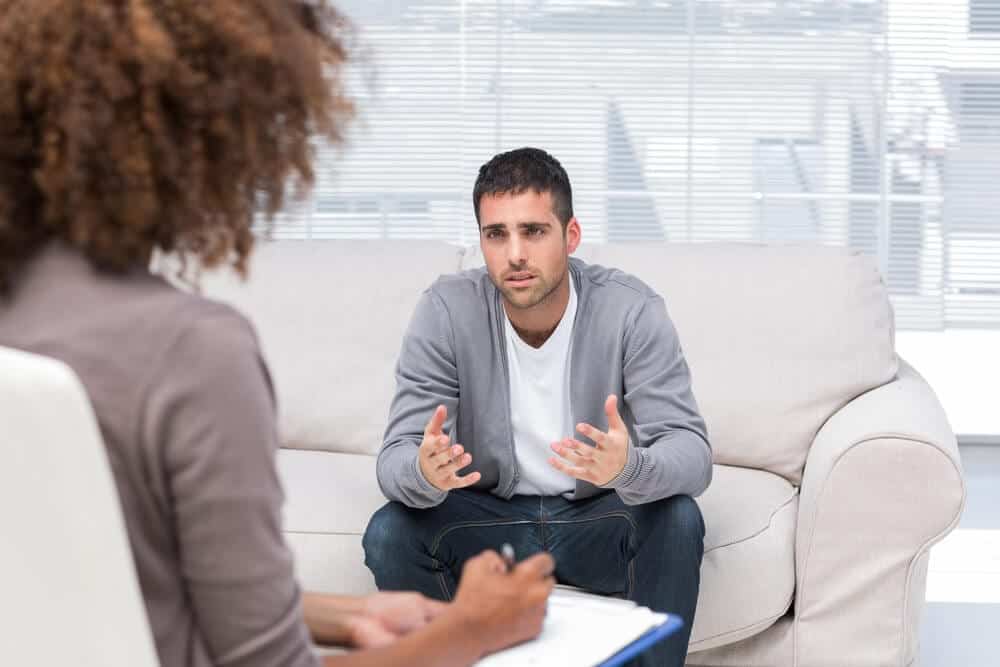Depression and Dating in Southern California
Depression is one of the most common mental disorders in the United States that affects millions of Americans every day. In fact, according to the National Institute of Mental Health, 17.3 million adults in the United States had at least one major depressive episode in 2017. For some individuals, depression can result in severe impairments that interfere with their daily lives — including dating. Here’s how depression can affect your love life… And what you can do about it.
What is Depression?
According to the National Institute of Mental Health, depression “is a common but serious mood disorder” that can “affect how a person feels, thinks, and handles daily activities.” Depression causes feelings of sadness and/or a loss of interest in activities you once enjoyed. Keep reading to find out more ways depression can affect your life.
Signs and Symptoms of Depression
Depression can affect a person mentally, physically and emotionally. Some symptoms of depression include:
- Feeling sad or having a depressed
mood - Loss of interest or pleasure in
activities once enjoyed - Changes in appetite
- Trouble sleeping or sleeping too
much - Loss of energy or increased
fatigue - Increase in purposeless physical
activity (i.e. pacing) - Feeling worthless or guilty
- Difficulty thinking, concentrating
or making decisions - Thoughts of death or suicide
Psychologists use the DSM-V handbook to make a diagnosis of depression. According to the DSM-V criteria, symptoms must last at least two weeks for a diagnosis of depression.
It’s important to note that medical conditions like thyroid problems, a brain tumor or vitamin deficiency can mimic symptoms of depression. If you suspect you have depression, you should always see your primary care doctor to rule out general medical causes. Depression can strike at any time, but on average, it first appears during a person’s late teens to mid-20s.
It’s also important to note that depression is different from sadness or grief/bereavement. The death of a loved one, loss of a job or the ending of a relationship are difficult experiences for any person to endure, so it is normal for feelings of sadness during these difficult times. Here are some differences according to the National Institute of Mental Health.
- In grief, painful feelings come in waves, often intermixed with
positive memories of the deceased. In major depression, mood and/or interest
(pleasure) are decreased for most of two weeks. - In grief, self-esteem is usually maintained. In major depression,
feelings of worthlessness and self-loathing are common. - For some people, the death of a
loved one can bring on major depression. Losing a job or being a victim of a
physical assault or a major disaster can lead to depression for some people.
When grief and depression coexist, the grief is more severe and lasts longer
than grief without depression.
Despite some overlap between grief and depression, they are different. Distinguishing between them can help people get the help, support or treatment they need.
Treatments for Depression
Thankfully, depression is one of the most treatable mental disorders. Between 80 and 90 percent of people diagnosed with depression eventually respond well to depression treatment. Some possible treatments include:
- Cognitive-Behavioral Therapy (CBT). This type of psychotherapy modifies thought patterns in order to change moods and behaviors. CBT blends cognitive therapy and behavioral therapy. Patients seeking this therapy work with their therapist in a structured setting to identify specific negative thought patterns and behavioral responses to challenging or stressful situations. Treatment involves developing balanced and constructive ways of responding to life stressors. As a short-term approach, CBT often requires only 10 to 20 sessions to treat a patient’s depression, with the option of returning to therapy anytime a relapse ensues.
- Mindfulness-Based Cognitive Therapy (MBCT). Mindfulness-based cognitive therapy was developed as a psychological intervention for individuals at risk of depressive relapse. This group-therapy program was designed to address vulnerabilities to depressive relapse for individuals. MBCT draws from both cognitive behavioral therapy and mindfulness practices from Buddhism and other world traditions. This form of therapy encourages individuals to become more aware of their internal events and to change the ways in which they relate to these thoughts as a means of improving depressive symptoms.
- Medication. Sometimes, depression cannot be treated with therapy alone. Antidepressants may be prescribed to improve a depressed person’s mood and symptoms. The most commonly prescribed antidepressants are selective serotonin reuptake inhibitors or SSRIs. These medications increase the availability of serotonin, one of the neurotransmitters responsible for communicating happiness to the brain, to improve a patient’s mood. It’s important to note that medication is most effective when used in combination with therapy to treat depression.
In addition to formal treatment, there are also a number of things people can do at home to reduce symptoms of depression. Lifestyle changes like exercising, getting more sleep on a consistent basis, eating a healthy diet and avoiding alcohol may improve mood and lessen symptoms of depression.
Depression and Dating
Depression can put a damper on many aspects of your personal life, including starting or maintaining a relationship – but don’t let your depressed brain convince you that you shouldn’t date or save a relationship! Being in a loving and supportive relationship can actually make you feel better.
Tips for Dating with Depression
There are many ways to improve your dating life, despite suffering from depression:
- DO be open with your partner about your depression. Of course, you want to put your best self forward when you start dating, but you don’t want to lie in the beginning. Be upfront and open about your depression and let your partner know that you’ll have both good days and bad days, when you may just feel sad and off.
- DON’T force yourself to go out when you don’t feel like it. It’s not good when you’re already having an off day and feel like you need to go out on a date. If you feel like you’re just not up to it, be honest and say no. Forcing yourself to go out can only harm your relationship and result in a bad date when you may otherwise have had a great time.
- DO concentrate on the other person. Depression often forces us to focus on our own needs — and that’s okay! But sometimes, asking questions about another person’s life allows you to distance yourself from your feelings of depression. Plus, showing interest is never a bad way to engage a potential partner!
- DON’T expect your partner to fix your depression. It’s important for your partner to be supportive and helpful, but you cannot rely on them to transform your mood. Stay motivated and take care of yourself so you can take care of the relationship. Most importantly, keep up with the treatment plan prescribed by your doctor to ensure your depression stays well-managed.
How to Meet People When You Have Depression
Meeting potential partners can feel overwhelming — with or without depression! However, it’s important not to feel discouraged from meeting people when you suffer from depression. Social connections are one of the best ways to ward off symptoms of depression, and what better way to make connections than by going out on dates?
Pursuing structured ways of meeting people can take some of the anxiety and overwhelm out of dating with depression. Join a support group of people who suffer from mood disorders, take an adult education class, participate in an exercise class or volunteer to help others.
You may even want to try online dating, especially if the idea of approaching someone in public intimidates you. No Longer
Lonely is an online dating site that helps people with mental illness meet others who understand their struggles.
Why Seek Treatment for Depression?

Depression can be isolating. Thanks to the stigma attached to mental illness, talking to others about your depression can be difficult and even embarrassing. Still, it’s important that you get the help you need, whether it’s talking to a therapist or going to a doctor for prescribed medication.
Seeking treatment is the first step you need to take to start living a happy and fulfilling life. Find a qualified therapist who specializes in the treatment of depression for outpatient treatment. You can also seek residential treatment for your depression, which means you’ll go to a facility center. You’ll stay there for a few weeks and work with top therapists and doctors to combat your depression, so you can focus on self-care without the stressors of everyday life.
Still not convinced? Seeking treatment for depression is also important to establishing meaningful relationships with others. Here’s how inpatient treatment for depression can help you improve your love life, in addition to improving your symptoms:
The Power of Positive Thinking
During inpatient treatment sessions, you’ll learn new, more positive ways of thinking that will improve your relationships with others. Instead of constantly doubting your partner, your rewired brain will be able to view situations in a more balanced light that makes it easier to put your trust in them. In return, greater trust almost always results in better relationships — after all, no one enjoys dating someone who can’t take their word at face value!
Learning New Coping Strategies
One of the major components of any treatment for depression, but especially inpatient treatment, is developing better coping skills for dealing with the stressors of life. Better self-care can prevent an off day from turning into a full-blown depressive episode. In a romantic relationship, a partner with depression may become codependent, overly relying on their partner to solve their problems. With new and healthier coping strategies in your toolkit, inpatient treatment will teach you to manage your emotions independently, taking some of the pressure and stress off your partner’s role in the relationship.
Attracting Healthy Relationships
As someone with depression, you may find yourself constantly self-sabotaging, particularly by attracting partners who treat you poorly or aren’t good for you. Someone with depression often learns to view themselves and their disease as a burden, and so they may not believe that they are worthy of a better, more fulfilling romantic relationship.
Seeking inpatient treatment for depression offers you the opportunity to get some distance from your relationships, so you can view them more objectively and realistically.
After learning your own value in treatment, you may realize that you are deserving of healthier relationships than the ones you had previously — and, as a happier version of yourself, find yourself attracting more positive partners to your life!
Allowing Your Partner to Heal
In the throngs of depression, it can be difficult to remember how our depression affects others around us. You may not realize it, but dealing with your depression is equally as hard for the people who support us every day. Someone who loves you so much never wants to see you suffer — and to feel as if you are suffering and they cannot do anything about it can be incredibly painful for your partner.
As you seek inpatient treatment for your depression, you also offer your partner the opportunity to take time to themselves for self-care and self-nourishment. While you’re away, they may even want to make an appointment with a therapist or attend a support group to discuss how it feels to be the caretaker of a partner with depression.
In short, seeking treatment for your depression isn’t just good for you — it’s also a positive thing for your loved ones around you!

